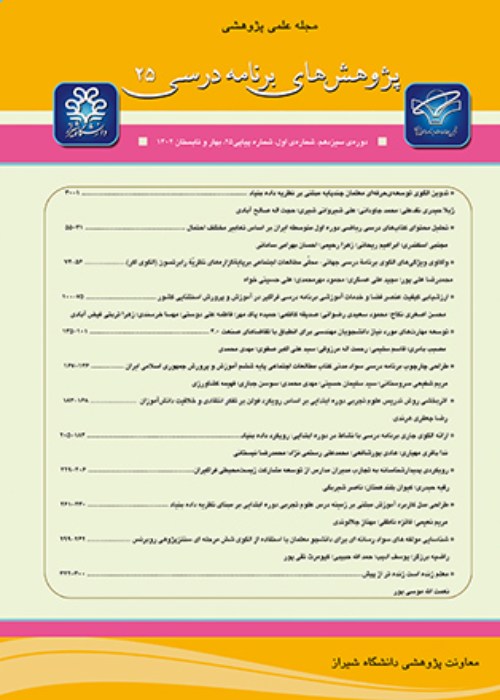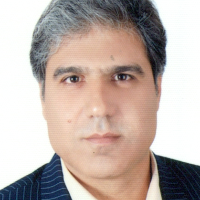Identifying Effective Factors and Strategies in the Process of Forming, Describing and Sharing of Primary Teachers' Tacit Knowledge
Tacit knowledge is a type of teacher knowledge. Experts consider tacit knowledge as the most important type of knowledge that cannot be expressed in official language, has an individual aspect, and has its roots in individual experiences. Tacit knowledge is the core of teachers' knowledge structure, and recognizing and managing teachers' tacit knowledge is an executive guarantee of their professionalism. Research has shown tacit knowledge as an important stimulus in the process of creativity and innovation that has an effective role in successful teaching, and quality and effectiveness of teacher performance. It was Michael Polanyi who first introduced the concept of tacit, or hidden, knowledge, by stating that one knows more than one can say. He introduced tacit knowledge as an integral part of knowledge, as the fundamental power of the mind, and as what is commonly found in the field of experiential, cognitive and mental learning. Polanyi believed that the conversion of tacit knowledge into explicit knowledge is possible through reflecting on professional experiences and formulating its steps and systematically expressing it. Payner and Zhang believed that examining teacher knowledge and curriculum can illuminate that this knowledge is implicit rather than explicit. Teachers as scholars (Tilly, 2000), as compared to other scholars, are more immersed in tacit knowledge due to nature of their work, which is a mixture of art and science. Therefore, teachers' tacit knowledge and its effective transmission must be seriously considered in education. Tacit knowledge is a type of knowledge that is difficult to express, formulate, and share and, unlike explicit knowledge, which is conscious and can be expressed in words, it is unconscious. People acquire tacit knowledge more intuitively and in their interaction with the environment. Teachers' tacit knowledge is formed at the intersection of teachers' experiences, values, and beliefs and knowledge in the classroom. In other words, tacit knowledge is the basis of teacher performance in the classroom and can strongly affect teacher behavior and performance. However, it has not received enough attention in the literature. Therefore, the main objective of this study was to identify the effective factors and effective strategies in the process of forming, revealing and sharing primary school teachers' tacit knowledge and to present a conceptual model in this regard. In line with this objective, a qualitative research approach and a grounded theory method was used for doing this study. Participants of this study were 20 primary school teachers with more than 15 years of teaching experience, from Yasuj, Kohgiluyeh and Boyer-Ahmad Province, Iran, who were selected based on purposive sampling. Research data were collected through conducting semi-structured interviews with participants. Data analysis was done based on the three-step coding pattern of the grounded theory method. The overall findings of this study revealed 9 categories in relation to the characteristics of tacit knowledge of expert teachers, 8 categories in relation to the effective factors in the process of formation of tacit knowledge of primary school teachers, 8 categories in relation to teachers' experiences of using tacit knowledge, and 14 categories with regard to strategies for revealing and sharing tacit knowledge of teachers. Finally, the identified categories were presented in form of a conceptual model and the validity of the model was assessed and approved based on the opinion of experts and through the use of the Delphi Technique. Tacit knowledge management and understanding the way to develop, reveal and share it are vital to success in all organizations. Considering this, education systems should offer the necessary context for experienced and expert teachers to make them able to share their tacit knowledge in an open, friendly and informal environment and on a regular basis and should provide opportunities for teachers' empowerment through providing opportunities for the exchange of information, experiences and skills between them. Teachers can also turn their tacit knowledge into tangible, expressive, and shared knowledge by expressing their lived educational experiences. It should be emphasized here that an education system can empower teachers and develop their professional knowledge and competencies only through paying special attention to effective strategies and methods for revealing and sharing tacit knowledge. Overall, tacit knowledge can serve as an effective factor for developing teachers' creativity and promoting their self-efficacy when teachers are able to reveal and share their tacit knowledge with their colleagues.
- حق عضویت دریافتی صرف حمایت از نشریات عضو و نگهداری، تکمیل و توسعه مگیران میشود.
- پرداخت حق اشتراک و دانلود مقالات اجازه بازنشر آن در سایر رسانههای چاپی و دیجیتال را به کاربر نمیدهد.




